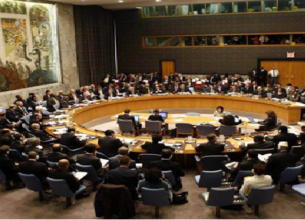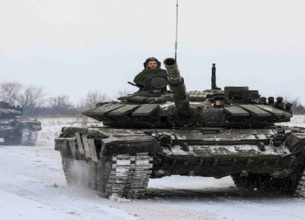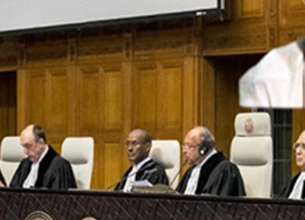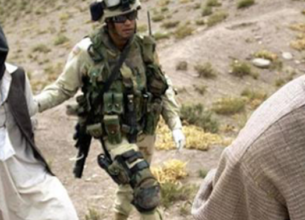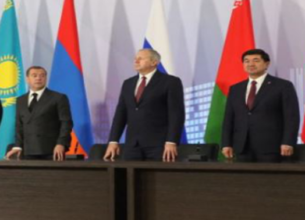Ukraine files an application against Russia in ICJ
03, Mar 2022
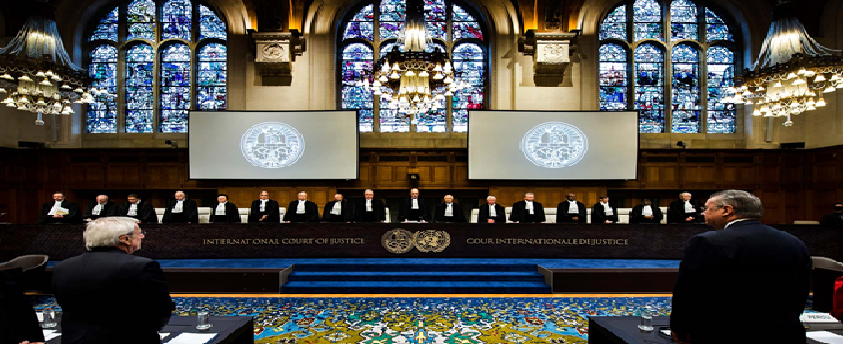
Prelims level : International Institutions – Summits, Working, Organisations
Mains level : GS-II Important International Institutions, agencies and fora- their structure, Mandate.
Why in News?
- Ukraine has filed an application before the International Court of Justice (ICJ), instituting proceedings against the Russian Federation concerning “a dispute relating to the interpretation, application and fulfilment of the 1948 Convention on the Prevention and Punishment of the Crime of Genocide” (the “Genocide Convention”).
What’s the Issue?
- Ukraine has accused Russia of falsely claiming that “acts of genocide have occurred in the Luhansk and Donetsk oblasts of Ukraine”, and of using that as a pretext to recognise the independence of these regions and of going to war against Ukraine.
About ICJ:
- ICJ was established in 1945 by the United Nations charter and started working in April 1946.
- It is the principal judicial organ of the United Nations, situated at the Peace Palace in The Hague (Netherlands).
- Unlike the six principal organs of the United Nations, it is the only one not located in New York (USA).
- It settles legal disputes between States and gives advisory opinions in accordance with international law, on legal questions referred to it by authorized United Nations organs and specialized agencies.
Structure of ICJ:
- The Court is composed of 15 judges, who are elected for terms of office of nine years by the United Nations General Assembly and the Security Council. These organs vote simultaneously but separately.
- In order to be elected, a candidate must receive an absolute majority of the votes in both bodies.
- In order to ensure a measure of continuity, one third of the Court is elected every three years and Judges are eligible for re-election.
- ICJ is assisted by a Registry, its administrative organ. Its official languages are English and French.
- The 15 judges of the Court are distributed in following regions:
- Three from Africa.
- Two from Latin America and Caribbean.
- Three from Asia.
- Five from Western Europe and other states.
- Two from Eastern Europe.
Independence of Judges:
- Unlike other organs of international organizations, the Court is not composed of representatives of governments. Members of the Court are independent judges whose first task, before taking up their duties, is to make a solemn declaration in open court that they will exercise their powers impartially and conscientiously.
Jurisdiction and Functioning:
- ICJ acts as a world court with two fold jurisdiction i.e. legal disputes between States submitted to it by them (contentious cases) and requests for advisory opinions on legal questions referred to it by United Nations organs and specialized agencies (advisory proceedings).
- Only States which are members of the United Nations and which have become parties to the Statute of the Court or which have accepted its jurisdiction under certain conditions, are parties to contentious cases.
- The judgment is final, binding on the parties to a case and without appeal (at the most it may be subject to interpretation or, upon the discovery of a new fact, revision).
About the Genocide Convention:
- The Convention on the Prevention and Punishment of the Crime of Genocide (Genocide Convention) is an instrument of international law that codified for the first time the crime of Genocide.
- According to the Genocide Convention, genocide is a crime that can take place both in time of war as well as in time of Peace.
- The Genocide Convention was the first human rights treaty adopted by the General Assembly of the United Nations on 9 December 1948 and signified the international Community’s Commitment to ‘never again’ after the atrocities committed during the Second World War.
- The definition of the crime of genocide, as set out in the Convention, has been widely adopted at both national and international levels, including in the 1998 Rome Statute of the International Criminal Court (ICC).
- The Rome Statute established four core international crimes: genocide, crimes against humanity, war crimes, and the crime of aggression. Those crimes “shall not be subject to any statute of limitations”.
- Importantly, the Convention establishes on State Parties the obligation to take measures to prevent and to punish the crime of genocide, including by enacting relevant legislation and punishing perpetrators, “whether they are constitutionally responsible rulers, public officials or private individuals” (Article IV).



